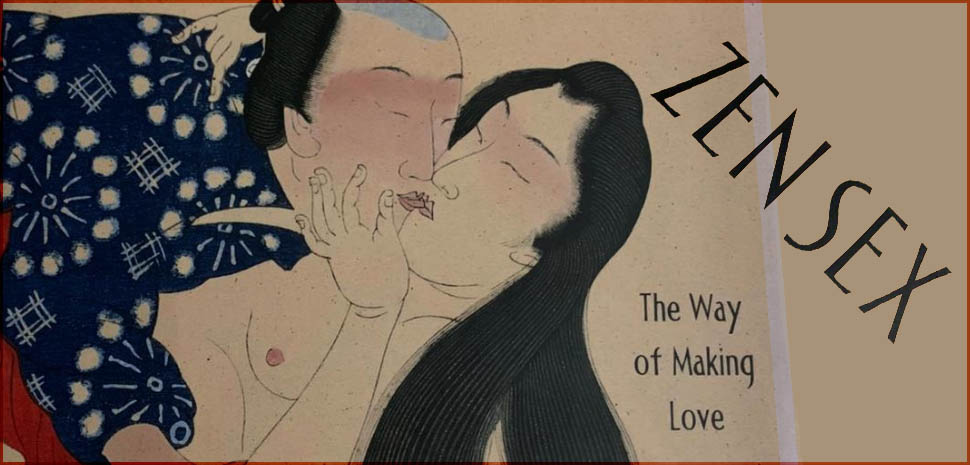When I decided to restart this blog (simply throwing posts in The Stream), I had intended to do more Buddhism-related posts, as I have grown a great affinity for exploring the many aspects of Buddhist schools, from Theravada to Zen. I still intend to write on these matters too, though I often struggle in doing up site posts. There’s a weird blockage, a conflict over what I wish to write upon. Lately Thelema has been demanding my attention, and I have a number of posts simultaneously coming together about various subjects as it relates to Thelema, though I haven’t been giving them too much attention. Yet, when I write about Thelema, it always feels like picking up the largest uncomfortable boulder. The words go out when you hit publish, and you may see responses elsewhere and fear association, fear others misunderstanding, or fear being misunderstood. The snare of a thing so ugly, yet so beautiful as is Thelema. It becomes a very human idea, so turning from it and abandoning it is quite difficult once it has set its claws in one.
Bhikkhu Ananda, known to others as Charles Henry Alan Bennett, said of Crowley’s system, “No Buddhist would consider it worthwhile to pass from the crystalline clearness of his own religion to this involved obscurity.” Yet, what if one were to have the fortune, or misfortune of starting with that obscurity and through striving and contemplation made it through and then onto something like Buddhism? Then in viewing Buddhism, it’s easy to see into and appreciate deeply the more complex and esoteric writings, such as koans, and the wonderful Chan tradition. Thelema has a massive body of work by Crowley, with some real gems for analysis and critique, for examination and appreciation. Yet it hasn’t been held by thousands of hands over thousands of years, which is to its detriment, but also to its advantage, as there is a lot of opportunity to prove one’s capabilities–to shew clear understanding of these Thelemic pointers, or to create new inspired works in their vein. Yet to do so requires a bravery that falling back on Buddhism certainly does not when it comes to the court of public opinion and of reputation! Yet when I retreat for this reason, I tend to back right into the sword which reads: ‘Fear not at all; fear neither men nor Fates, nor gods, nor anything. Money fear not, nor laughter of the folk folly, nor any other power in heaven or upon the earth or under the earth. Nu is your refuge as Hadit your light; and I am the strength, force, vigour, of your arms.’ (BoTL III-17)
I’ve had to re-assess my goals with the pandemic and its resulting effects. The idea of striving toward creating a public meditation space/sleep temple (offering free hypnotherapy and hypnosis classes) above or beside a store which would sell all kinds of wondrous books simply isn’t the most feasible goal when you have to crawl and scratch for every dollar to fund it and with the current retail apocalypse. It’s a big vision which replaced many smaller ones, and I have been kicking myself since we recorded a podcast episode in which we spoke about writing, and in it I had dismissed writing fiction, something I have wanted to do from childhood. The impulse to write fiction has reappeared, at first in the form of doing some short stories, sparked by recent life events. I decided to re-read Aleister Crowley’s Wordsworth Collection of short stories, and also had to view some early correspondence with my (now wife) where we were exchanging short stories and story ideas we had written down. In all this it evoked a memory of when I was in Grade 10 and took an elective ‘creative writing’ course. The teacher for it was also the gym teacher, and I was surprised by his boldness to bring up Crowley in our class. I put my hand up (for once) that lesson, and engaged in discussion with the class, having read a few books by Crowley then. I’d eventually end up writing a short story as was the assignment, and wrote one detailing a shift happening globally as people ceased in their mad ways, having attained an understanding of Life, dropping away all delusion and obscurity, thanks to Thelema. Most sad is, I had written that when I was practically half my current age! So Thelema had its claws in me from way back then, became a lens through which I’d view other mystical works I didn’t explore in my teenage years, or even early 20’s.
It is only in the past few years that I’ve really taken identity in the Buddhist works, especially Zen (which my mind sees as a parallel to Thelema, hence the itch to prattle on about it at times here). I believe there’s endless inspiration still untapped from the Buddhist works, I believe them to be truly timeless, and time will only tell it seems what will happen with Thelema. However how I approached the Zen writings was the result of years of studying Thelema, so the place I write from is unique, unlike other monks or surface-meditators. I won’t be writing as some expert Buddhist or Buddhism scholar, but I hope in the least to offer thought provoking fun when I cover those materials!
Buddhism is beautiful and meets the criteria quite well laid out by Crowley in his calling for ‘the Method of Science with the Aim of Religion‘. Having grown what understanding of it I have cultivated, I am amazed by how purely logical, coherent, and scientific the system is, which is an aspect not lost to Crowley who in 1902 wrote his essay Science and Buddhism to demonstrate this. Bhikkhu Ananda (Bennett) was a friend and travel partner of Aleister Crowley. In 1902 in Burma, Bennett took his monk vows, and assumed the name Ananda Metteyya or “Bliss of loving kindness” and would become one of the first Englishmen to become ordained Buddhist monks. Bennett also worked with Golden Dawn leader Samuel Liddell MacGregor Mathers on a book of correspondences, which Crowley would eventually expand upon to produce Liber 777… Crowley would devote fiction to Bennett, invited him to stay with him when he had nowhere else to turn, and Bennett in turn helped train Crowley in white magic and enlightenment practice; both saw the validity in Buddhist practice. Unfortunately they eventually broke apart, with Bennett not seeing the vision of Thelema and Crowley rejecting Buddhism in the establishing of Thelema. (I can’t help but wonder what Bennett would have thought of Zen, and if having knowledge of Zen and its literature, would he have assisted Crowley in establishing Thelema…)
I wrote this as I have seen a trend of people looking to throw Crowley in the waste bucket in some kind of mob-like madness, disregarding the work of others who have carried the boulder (or mountain) so far and had shewn light upon the grounds it concealed. From this recent movement called ‘Post-Thelema’, to the few ostentatious folk who insist on the lowest and most dishonest interpretation of Thelema by calling it a fascist system (see my response to their essay here). Alas, the Book of the Law provokes me again, III-68 ‘Yet to all it shall seem beautiful. Its enemies who say not so, are mere liars.’
When I can finally stop clinging to Thelema, or perhaps, when it can stop clinging to me, I will look to broaden the scope of my writings and hop off the recurrent themes. For now, however, there’s a few more Crowleyean frogs riding leaves and logs down the stream and they’re heading just this way.


